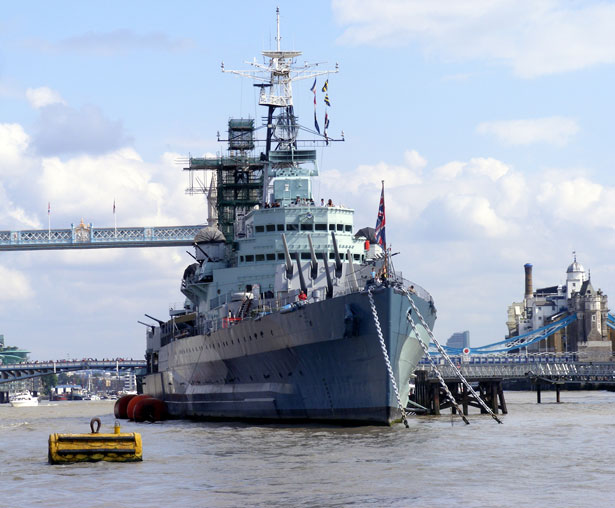THE STAND OFF BETWEEN GHANA AND ARGENTINA OVER SEIZED WARSHIPS. THE PROBABLE RULE OF INTERNATIONAL LAW. PARTS I and II
| President of Argentina |
| President of Ghana |
 |
| Head Honcho, Elliot Management |
 |
| The Kind of Guys who will decide who gets the ships |
Editor's Note :
Recently a former student of Og's wrote the old guy after following the Ghana/ Argentina stand off coverage in the AAB blog. Og thought the former student had an interesting observation, sufficient to warrant a protracted E-mail response. Then after due consideration, decided that the question and answer may be of interest to all of our readers. So here minus the former student's identity is the question and response. We think Og answers exactly why we have favored the Argentine position editorially since day one. We first posted the question and the response before the week end. Then the former student came back with another interesting set of questions. So here, we again present Part I , the original question and Og's response, for those of you who may not have read it when it first came out. Below what is now Part I we present the follow on questions and the Og response.
 |
| A WAR SHIP IN A FOREIGN PORT IS AN EXTENSION OF ITS' COUNTRY'S SOVEREIGNTY |
THE FORMER STUDENT'S QUESTION:
The spat between Argentina, its vastly overdue payments to it's creditor, and Ghana is a fascinating one.
This is what I found on the UN site for immunity of military vessels.
Article95:
Immunity of warships on the high seasWarships on the high seas have complete immunity from the jurisdiction of any State other than the flag State.
Article 96 Immunity of ships used only on government non-commercial service Ships owned or operated by a State and used only on government non-commercial service shall, on the high seas, have complete immunity from the jurisdiction of any State other than the flag State.
So Argentina says its a violation of international law. But if the ship is at port, is that still considered high seas? I found this dictionary definition, high seas pl.n. The open waters of an ocean or a sea beyond the limits of the territorial jurisdiction of a country. So the ship was within the territorial jurisdiction of Ghana... making the seizure legal?
THE OLD INSTRUCTOR's RESPONSE:
No, I think the "High Seas" language on the UN web site is simply what makes the U.S. District Court and the Ghana Magistrates actions arguable. However the U.S. and GHANA courts are literally grasping at straws for an arguable position. That there is some arguable issues is one reason why Argentina has so far limited their response to a display of arms and haven't tried to break out the ships by force, or scuttle them.
Remember that the UN website is a "secondary source" at best, for the rule of international law, and as such doesn't carry much weight. The International Court for the Law of the Sea will decide the case on the weight of the precedent which comes from a variety of sources. First there is the primary source of International Conventions . These are multilateral treaties signed by more than two nations agreeing that the "rule of international law " is as stated in the convention on the subjects the convention addresses. There are strong arguments that can be made from primary sources such as "Diplomatic Correspondence" ( which can be either a primary or secondary source depending on the origin and nature of the correspondence) that the use of the term "High SEAS" in articles 95 and 96 of the UN Convention on the Law of the Sea doesn't limit the traditional privileges and immunities of war ships elsewhere.
The traditional view of war ships in International law, well documented in secondary sources known as "Commentaries", has always been that warships, when in commission (and both ships certainly were ), are at all times and all places considered part of the territory of the sovereign nation commissioning and operating them. This is why , around the world, political opponents being hunted by repressive regimes have sought political asylum on the war ships of "Free World"nations. A strong secondary source case can be made for this position by examining the standards of instruction for world navies on the matter.
A war ship in port always has either or both of the following senior personnel at the gangway, an "officer of the deck" ( a junior commissioned officer), and a "junior officer of the deck" ( a senior non commissioned or "petty" officer). There is a global standard of instruction for these personnel who could at any time during a port call be faced with someone running up a gangway seeking asylum with local police in hot pursuit. They are instructed to uphold the sovereignty of the ship under all circumstances, taking the asylum seeker into custody and notifying their commanding officer who will contact their state department for any decision on granting asylum. These watch standers are to resist , by force if necessary, any attempt to board by force by local authorities. They are to explain to the local authorities the rule of international law and the sovereignty of the ship and explain that the person they were pursuing has requested asylum and that they will hold him or her in custody until a decision on asylum is made by their state department. The standard of instruction for naval operations in foreign ports certainly doesn't paint warships like ordinary state property.
More over, nearly all commentaries take pains to explain that this sovereign territorial extension over war ships, similar to that granted to embassies extends to the warship and her embarked boats only. It is always duly noted that military air craft , including military aircraft embarked on ships are only accorded the privileges and immunities of state property, not extra territorial sovereignty. So why would the UN put the "High Seas" language in their articles ? This language has to be considered in light of the use of the term "complete immunity". Certainly within the confines of the borders of other nations, extraterritorial elements of other sovereign nations like war ships, and embassies are expected to follow local laws on such things as noise abatement, sanitation, toxic emissions, radio emissions, and local electronic communication interference, under penalty of expulsion. A host nation may force an extraterritorial element of another nation such as an embassy or war ship to leave, but they can not exercise any other sovereign right over these extra territorial elements. The United Nations simply didn't feel compelled on this latest round of codification to spell out all circumstances of extra territoriality, since it is well covered in widely recognized authorities. I believe the rule of extra- territoriality for warships in commission still stands and that any argument to the contrary has only the language that you cited to stand on and that language once examined will have very little weight.
 |
| Judges, no matter how many of them sign off on a writ none have the power to extinguish the sovereignty of a nation |
There is also another very important element here. Both ships were on official visits and there is navy to navy and /port authority to navy correspondence somewhere that precedes the visit. There can be no doubt that these ships were on a diplomatic port call agreed to by the Ghana naval and state authorities. No navy on Earth would engage in such a visit if it wasn't understood that all of the traditional privileges and immunities of war ships would be observed. So even if the seemingly impossible happened and the UN Court ruled for the Ghana magistrates order, there is a breach of contract between Ghana and Argentina. Ghana's legal system is based on the common law where contracts are formal and written and must contain certain elements. Argentina is a civil code state where a contract can be deemed to exist even without a formal written instrument when certain elements of an agreement are proven to exist. The official nature of the visit and the related correspondence would make the case in any civil code nation that Ghana had committed a sort of juridical act of war.
If the Ghana writ is upheld. At least half the world's legal scholars would have to support Argentina's right to resort to force of arms. More over, probably a majority of the world's common law legal scholars would have to fault the court for inadequate attention to precedent. Then there is the world order issue. If the Ghana writ is upheld any government anywhere could at any moment board and / or seize any warship of any nation for alleged violation of any national law. In our own case our navy could be defeated by simply responding to invitations to visit countries, and then having the ships seized in port by local police forces claiming to be enforcing some national or local law . The customary diplomatic role of naval vessels would come to a screeching halt. No nation would risk a navy ship in civil disaster relief missions. The Ghana writ on its face as well as the U.S. writ are very bad public policy.
Finally, you have to keep in mind who the claimant in this case is. Elliot is called by Argentina, a "Vulture fund". They bought up the failing bonds that Argentina ultimately defaulted on at about 30 cents a share. Argentina settled with all of the other claimants for about that amount allowing many bond holders to escape with their principal in tact. Elliot as a "Vulture Fund" refused to come to the bargaining table, as was their probable plan all along, and demanded face value for the bonds, which is far more than they paid for them. In any bankruptcy situation, which a national bond default is very similar to, creditors who won't come to the bargaining table in good faith are usually simply left out. In civil code jurisdictions judges may give weight to "principles of equity" (fairness) over case precedent. Elliot as a "Vulture fund" probably would have been tossed out of court in any Latin American or Southern European jurisdiction. But they used a corporate friendly U.S.Court to obtain their original writ and a common law third world court to enforce it.
Heading into the International legal system now the odds are against Elliot and Ghana. If somehow they emerge with the Ghana court's decision intact, Argentina still has an excellent argument for resolution by force of arms that is likely to be backed by half the world. Corporations are the creatures of governments, they don't rule governments and sovereign nations. Not yet anyway. Stay tuned. Elliot has billions and is after billions of dollars and if there is a decision against Argentina and the traditional privileges and immunities of war ships, follow the money trail, especially when it appears to lead somewhere in the judiciary.
PART II
"FOLLOW ON QUESTION: " As always, thank you! Last question, would the fact that Argentina put these two ships up as collateral for the original debt have any implications?"
Og's Response: "Subject: Re: Argentina & Ghana
The AAIS took issue with her over her stand on the Falklands, but international law is what it is, and on the issue of the immunity of war ships she has it right. We have found no evidence based on the Argentine, Ghana, and British accounts of the events that Argentina ever pledged any warships for their loans. Additionally if Argentina did, it would have been illegal and unenforceable, unless one could find an incredibly ignorant magistrate, or corrupt one to your purpose. If Argentina actually did pledge the ships in security for the bonds, it would have been in violation of international law , done by one of President de Kirchner's predecessors and not legally binding on her. Indeed she would have an international duty to repudiate the act. Warships are exempt internationally from the collection efforts of national creditors to avoid a breech in the rule of law that establishes the extraterritoriality of warships. Let that camel's nose in the tent and every nation on earth knows that their mightiest war ship has to occasionally stop for fuel,water, and food in foreign ports. Enemy agents could simply hire lawyers, pose as creditors, or fake a harbor pollution incident that frames the war ship, and local police in larger numbers and better armed than the ship's crew swarm up the gangway and take your best naval battle asset out of action. The extraterritoriality of warships is, always has been, and must remain sacrosanct. So while a U.S. judge started this thing in motion, with a ruling that may or may not have anticipated seizing a war ship , this woman is actually standing up for the legal interpretation that America needs, but we are doing nothing to rein in this judge who has displaced the role of the Department of State.



Bonds are issued on "the full faith and credit" of the issuing government. That is usually enough for bond speculators even when a nation doesn't have that great a reputation for fiscal responsibility. Governments always have income because they can tax. They go through hard times but rarely are nations extinguished. One head of state and / or government always tries to pay the debts of predecessors in order to maintain value in that "full faith and credit". In the case of the default that caused the warship seizures Argentina did meet with creditors before default but Elliot Capital wouldn't come. The other investors were able to preserve their principal, Elliot could have too, but refused to participate in the managed default, demanding payment of the face value of the bonds as calculated to the day of default. Businesses declare bankruptcy , nations declare default. In either case if a creditor refuses to bargain in good faith they can be left out.
Of course this thing is headed next to an international courtroom. Any lawyer will tell you that any trial is crap shoot. Just because 2,000 years of Western international law favors Argentina doesn't mean that Christina gets a cake walk. But I think it looks pretty good for Argentina going into the ring, all legal arguments aside. Why?

Argentina Versus Ghana and Elliot Management's Paul Singer
So who do you think gets the world opinion sympathy? Who is going to be the news media darling? Who looks like a stooge? Who looks like a greedy crook? No I didn't say who is.... I said who looks like.... You do understand now why Argentina is expected to come out of this with flag held high? Like it or not despite her dangerous views on the Falklands, the United States had better hope that "Earth Mother" takes the "stooge" and the "highway robber" down to the mat in court. A U.S. Carrier Task Force could be the next ship group seized while on a foreign port call for improper garbage disposal or whatever.
Og
This comment has been removed by a blog administrator.
ReplyDelete